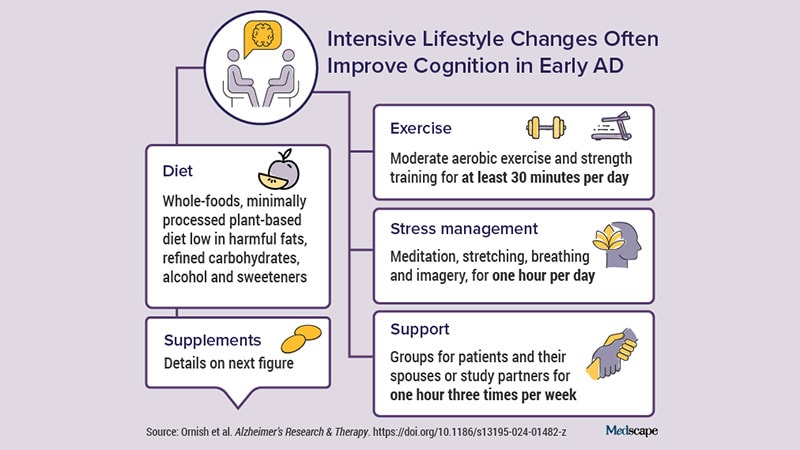Can Intensive Lifestyle Changes Slow or Reverse Early Alzheimer’s Disease?
Kathrin LaFaver, MD Kathrin LaFaver, MD, a neurologist and lifestyle medicine specialist from Saratoga Springs, New York, interviewed Dean Ornish, MD, the founder and president of the nonprofit Preventive Medicine Research Institute in Sausalito, California, and a clinical professor of medicine at the University of California in San Francisco and San Diego, about his recent study …





